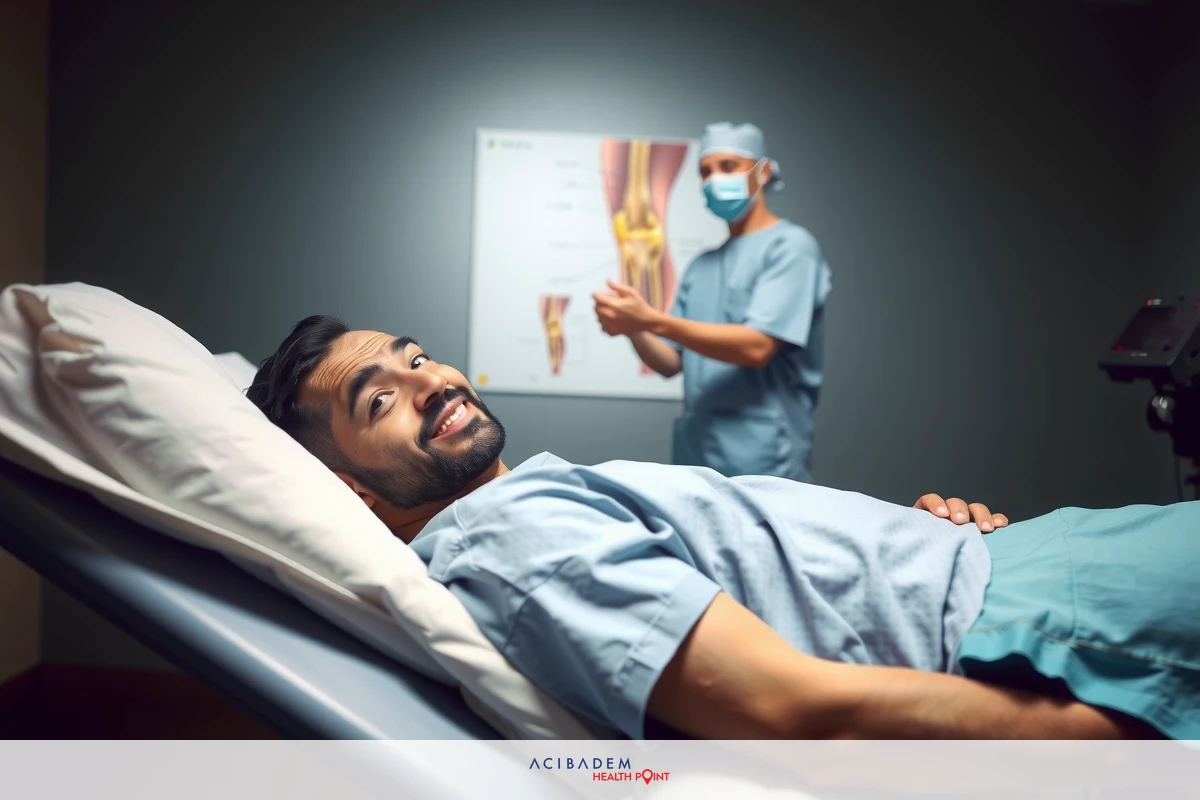Is Knee Replacement Done Under General Anesthesia?
Is Knee Replacement Done Under General Anesthesia? When we think about knee replacement many questions come to mind. One common question is whether general anesthesia is used. It’s vital to know what happens during surgery. The right facts can ease your mind and help you prepare for the day.
Knee replacement is a big step towards a life with less pain. Doctors have done this work many times and they are adept at it. They want your surgery to go well and be safe too. You should ask them all you need before the day comes.
There are different ways doctors can make you sleep during surgery. Most people will not feel any pain when it’s being done. After you might spend some time in the hospital to heal and get strong again. If you have more questions just talk to your doctor or care team.
What is Knee Replacement Surgery?
Knee replacement surgery is a common procedure in orthopedics. It’s done to replace a knee that hurts too much. The pain often comes from arthritis or injury. In this surgery doctors put in new parts for your knee.
The goal of knee replacement is to make life better. It can help you walk easier and be more active. After the surgery most people feel less pain and move better. This change can take time but many find it worth the wait.
During knee replacement surgeons remove damaged bone and cartilage. They then place an artificial joint made of metal and plastic. This new joint helps your knee bend smoothly like before.
Most of these surgeries are done under general anesthesia or other types of anesthesia so you won’t feel pain during the operation. Your team will tell you how they plan to keep you safe and comfortable throughout the process.
Anesthesia for Knee Replacement Surgery
Anesthesia is a key part of knee replacement surgery. It makes sure you don’t feel pain during the operation. The type used often depends on your health, age, and surgeon’s plan. A talk with an anesthesiologist before surgery will help decide what’s best for you.
General anesthesia is one way to keep you asleep and pain-free. You’ll breathe it in or get it through a vein. Once the surgery starts you won’t be aware until it’s done and they wake you up. This kind is common in many kinds of surgeries not just for replacing knees.
Another option could be spinal or epidural anesthesia. With these methods only your lower body goes numb. You might stay awake but still won’t feel any surgery being done below your waistline.
Using anesthesia safely is a big part of orthopedic surgery success. Your doctors will watch over your heart rate, breathing, and blood pressure all through the process to keep risks low. Afterward they’ll help manage any discomfort as you begin to heal and recover movement in your knee again.

Types of Anesthesia Used
When you go for knee replacement surgery the type of anesthesia used is important. General anesthesia is one way your team might make you sleep during the operation. It means you’ll be totally out and not feel anything while the surgeons work. This method is often chosen because it’s simple for patients: You sleep they fix your knee.
However there’s also regional anesthesia to consider. This includes spinal or epidural blocks that numb just part of your body. With these options you might be awake but will have no feeling in the lower half of your body which makes it perfect for procedures on legs and knees.
Lastly local anesthesia could be used sometimes too. They inject this right near where the surgery happens to stop pain in a small spot only. While not as common for full knee replacements knowing all types can help when talking with your doctor about what’s best for you.
Frequently Asked Questions
How often is general anesthesia used in knee replacement surgeries?
Yes general anesthesia is commonly used. It's safe and works well for many patients.
When might a doctor choose not to use general anesthesia?
A doctor may avoid it if there are specific health risks. They will talk with you about any concerns.
Are there benefits to using general anesthesia for knee replacements?
The main benefit is that you're asleep and feel no pain during the surgery. It can also be less stressful for some patients.










